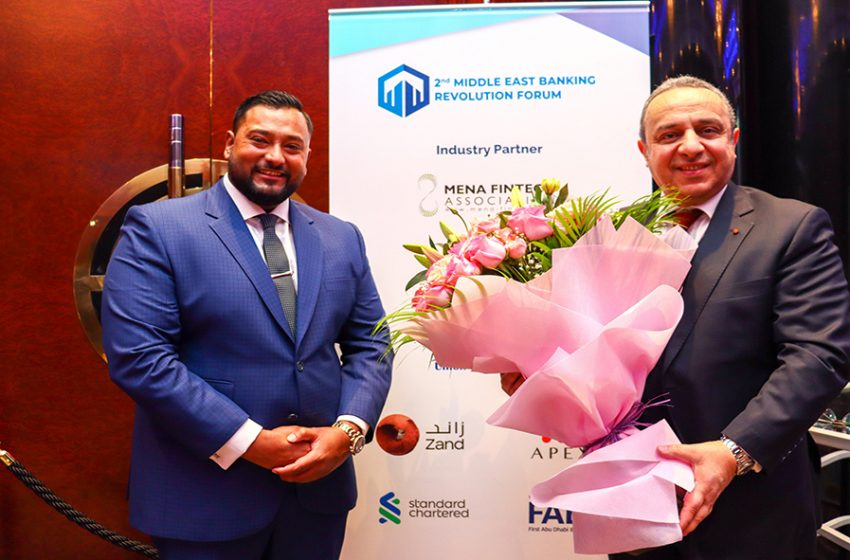Join In For A Memorable Third Week of DSS with Dazzling Retail Offers and Raffles
CS Event’s 2nd Banking Revolution Summit takes off with a focus on disruptive technology as assets of 520 banks in the Arab World exceed $4.25 trillion in 2021

Total assets of global financial institutions exceeded US$468.7 trillion in 2020 – 5.5 times the global gross domestic product (GDP) – that reflects the industry’s growing significance in the global economy.
- The combined asset value of 520 banks in the Arab World have exceeded US$4.25 trillion with deposits reaching US$2.65 trillion and loan advances exceeding US$2.6 trillion by September 2021, according to Union of Arab Banks;
- In 2020, the assets of global financial institutions amounted to more than US$468.7 trillion, up from US$404.1 trillion in 2019.
- Global banking assets value exceeded US$180 trillion in 2020, double the global gross domestic product (GDP), reflects the industry’s growing significance in global economy
- In 2020, the worldwide volume of mobile money transfer grew 15 percent to 41 billion with transaction value jumping 22 percent to US$767 billion while the number of registered mobile money accounts grew 13 percent to 1.2 billion;
- More than 50 percent population in the Middle East and Africa remains unbanked;
- In the Middle East, the number of mobile money accounts reached 146 million with transactions value growing 26 percent to US$10.5 billion. The number of registered mobile money accounts grew 9 percent to 56 million.
The combined asset value of 520 banks in the Arab World have exceeded US$4.25 trillion with deposits reaching US$2.65 trillion and loan advances exceeding US$2.6 trillion by September 2021, according to Union of Arab Banks.
Since the outbreak of COVID-19 in early 2020, most banks have speeded up the digitization process to offer touchless, seamless and smooth banking experience to their customers, in line with the health and safety protocols during the COVID-19 pandemic. Disruptive technology, innovation and fintech solutions are the focal point of discussions at the at the two-day 2nd Middle East Banking Revolution Summit that takes place at Dusit Thani Hotel in Dubai from February 14-15, 2022.
“Banks are undergoing digital transformation. The COVID-19 pandemic has accelerated the pace of digitization. However, the biggest problem faced by the industry in digitization is the lack of financial regulation,” Wissam H Fattouh, Secretary-General of Union of Arab Banks, said, after inaugurating the two-day 2nd Middle East Banking Revolution Summit at Dusit Thani Hotel in Dubai.
“The UAE and Saudi Arabia has led the industry regulation already, joined by Kuwait. I believe, other countries are also working towards this.”
Yet, more than 50 percent population in the Middle East and Africa remains unbanked, while financial technology is disrupting the region’s banking and financial sectors – that doubles up the challenges faced by the industry – which also dominates discussions at the two-day 2nd Middle East Banking Revolution Summit.
“Banks should start lending to the small and medium enterprises (SMEs), who represent 90 percent of the Arab economy and employ 70 percent of the total workforce. This will help increase financial inclusion in the Arab World, where more than 50 percent of the population remain outside the purview of the banking services,” Wissam H Fattouh said. “Increased digitization will help change this situation and increase financial inclusion.”
Deployment of disruptive financial technology is helping banks expand their asset base, despite the COVID-19 pandemic, as the total value of assets of global financial institutions increased from US$286.5 trillion in 2010 to a whopping US$468.7 trillion in 2020, more than 5.5 times the global gross domestic product (GDP) of US$84.9 trillion recorded in 2020.
The total assets of global financial institutions grew at 15.98 percent to US$468.7 trillion, up from US$404.1 trillion in 2019, despite the COVID-19 pandemic – that reflects the sector’s resilience and the extent of digitization in the industry.
Of these, the value of bank assets worldwide amounted to more than US$180 trillion, up from US$155.4 trillion in 2019, according to Statista.com, a global intelligence provider.
The Middle East is one of the world’s fastest growing markets in the banking sector. The region’s financial services sector is in the midst of a massive digitization process that will help the industry to penetrate deeper into the society, according to PriceWaterhouseCoopers (PwC), a global accounting firm.“The banks in the Arab World are in the process of digitization that will see consumers access financial services through their fingertips, as financial technology start-ups have already started disrupting the industry – to offer seamless, transparent and touchless experience.”
“With populations getting younger, better educated and more demanding; increasing diversity in financial products and services; and growing regulatory requirements for better monitoring of processes and developing secure financial systems, banks and financial institutions across the region are investing heavily to match or outstrip their international peers,” PwC says.
In 2020, the volume of mobile money transfer grew 15 percent to 41 billion with transaction value jumping 22 percent to US$767 billion while the number of registered mobile money accounts grew 13 percent to 1.2 billion.
In the Middle East, the number of mobile money accounts reached 146 million with transactions value growing 26 percent to US$10.5 billion. The number of registered mobile money accounts grew 9 percent to 56 million.
While most consumers take basic access to financial services for granted, more than 1.6 billion adults, or more than a fifth of the mankind, do not have access to banking and financial services, according to the World Bank. While financial inclusion could help the banking sector grow, digital transformation could help it to become more agile.
However, mobile money transfer is growing faster than any other channels, disrupting the payment industry. International remittances processed via mobile money increased by 65 per cent in 2020. For the first time, over $1 billion is being sent and received every month, according to Global System for Mobile Communications Association (GSMA). Over the past five years, the value of transactions between mobile money platforms and banks grew fourfold, reaching $68 billion in 2020, up from just $15 billion in 2015.
“Despite fears that remittances would decline as people around the world suffered job losses and income cuts, it seems clear that diasporas around the world continued to use mobile money to come to the aid of those back home,” the State of the Industry Report on Mobile Money 2021 by GSMA, says.
“There are now over 300 million monthly active mobile money accounts. Not only are customers using their accounts more frequently, but they are using them for new and more advanced use cases. This suggests that more and more people are moving away from the margins of financial systems and leading increasingly digital lives.
“Transaction values also grew across the board as more money circulated and was cashed-in and cashed-out than ever before. For the first time, the global value of daily transactions exceeded $2 billion dollars, and is expected to surpass $3 billion a day by the end of 2022.”
More than 200 senior bankers and financial technology experts will discuss and brainstorm on new ideas at the Middle East Banking Revolution Summit which is expected to offer some directions to the attending delegates.
Welcoming Wissam H Fattouh, Secretary-General of Union of Arab Banks, Nizam Deen, Founder and Chief Executive Officer of CS Events – Organisers of the2nd Middle East Banking Revolution Summit, says, “As we enter the future of banking industry, many consumers remain sceptical and are trying to adjust to the digital banking environment. While the industry faces digital disruption, the cost of operating a bank account has been drastically reduced through technology adaptation. Therefore, banks are in a better position to acquire increased number of unbanked people that could change the global banking sector.
“Banking sector needs to be sustainable and this can happen by making banking services more accessible, affordable, while digitizing the payment services.”

ME Banking Revolution Forum aims to showcase latest innovations and practical case studies along with interactive panel discussions designed to guide the banking sector in Middle East to identify the right strategy to knock through long-standing resistance and be future ready! An exciting and timely virtual conference on its way discussing the future of financial industry in Middle East driven by innovation and digital advancements with adoption of technologies. This important two-days virtual conference will articulate the importance to commit to Digital Transformation to accomplish a promising future vision; namely, delivering best-quality integrated and comprehensive banking system.
Banking and financial services are soon going to be faceless, touchless and seamless experience for the customers where transactions and processes are going to be fully automated, nearly effortless and painless experiences.
Organised by Cogent Solutions Event Management (CS Events), the 2nd Banking Revolution Summit, is attended by more than 200 bankers and financial technology leaders, more than 35 speakers and panelists representing more than 100 financial institutions and address more than 20 key issues and topics.
The profile of the delegates includes Government Officials and C-Level Executives (CIOs, CTOs, CISOs, CEOs, CROs), Heads of IT & Innovation VPs, SVPs, EVPs, GMs and Senior Management Heads, Directors, Managers from Departments Such as: Cyber Security, Cyber Défense, Cyber Threat Intelligence, Operational risk, Frauds & Breaches, Cards & Payments, IT & Innovation, Digital Banking, Data & Customer Analytics, Strategy, Business Management & Operations, etc.
The 2nd Banking Revolution Summit is supported by MENA Fintech Association, Coursera, BML Technology LLC, BPC among others.
Table
| Year | Banking Asset Value |
| 2010 | US$286.5 trillion |
| 2011 | US$302.5 trillion |
| 2015 | US$325 trillion |
| 2018 | US$387.9 trillion |
| 2019 | US$404.1 trillion |
| 2020 | US$468.7 trillion |







